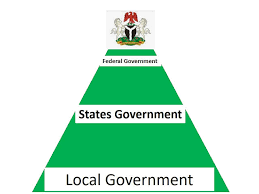
By Ologeh Joseph Chibu
In 2023, the Manufacturers Association of Nigeria (MAN) reported a distressing trend in the manufacturing sector.
The group said with 767 companies ceased operations and 335 are still facing financial turmoil.
This alarming situation unfolded amidst economic challenges characterized by exchange rate instability, soaring inflation rates, and other detrimental factors hindering investment prospects.
In a statement made available to Irohinodua, MAN vehemently opposes the Federal Government’s newly implemented Expatriate Employment Levy.
MAN expressed deep concern over the newly introduced Expatriate Employment Levy by the Federal Government, denouncing it as contradictory to President Bola Tinubu’s Renewed Hope Agenda and Fiscal Policy and Tax Reform initiative. The association highlighted the adverse repercussions on the manufacturing sector, emphasizing the significant burden it imposes on businesses already grappling with numerous challenges.
The statement read, “The imposition of EEL poses a potential impact on the manufacturing sector and the economy at large.
“This will in turn mark an unwarranted and unprecedented addition to the cost of doing business in Nigeria, especially to manufacturers. The manufacturing sector is already beset with multidimensional challenges. In the year 2023, 335 manufacturing companies became distressed and 767 shut down.”
Capacity utilization in the manufacturing sector plummeted to 56%, exacerbated by surging interest rates and a scarcity of foreign exchange essential for importing raw materials and machinery. Furthermore, the accumulation of unsold finished products reached a staggering N350 billion, while real growth dwindled to a mere 2.4%.
Furthermore, it added, “Inventory of unsold finished products has increased to N350bn and the real growth has dropped to 2.4 per cent.”
MAN raised objections to the Expatriate Employment Levy, asserting that it violates international trade agreements and risks retaliation against Nigerian workers abroad, jeopardizing regional integration efforts and tarnishing Nigeria’s reputation on the global stage.
The association cautioned against the potential legal ramifications and urged President Tinubu to halt the implementation of the levy to avert further economic distress.
“We are equally worried that the imposition of such a levy could have far-reaching implications for our national economy and potentially exert pressure on our national currency could be introduced through a Handbook, rather than a law enacted by the National Assembly.”
The Expatriate Employment Levy, introduced to address wage disparities and promote local employment in foreign-owned companies, imposes fees of $10,000 for staff and $15,000 for directors, a significant departure from previous rates. While aimed at narrowing wage gaps, the policy has drawn criticism from the Organized Private Sector, including the Lagos Chamber of Commerce and Industry and the Centre for the Promotion of Private Enterprise, citing concerns about its impact on foreign investments and diaspora Nigerians.
The statement expressed concerns that, “The Expatriate Employment Levy may cause unintended consequences that may trigger the relocation of foreign companies to neighbouring countries that present a more conducive and less expensive environment for business”.
“The imposition of this levy may likely spark retaliatory actions taken by other countries by imposing levies on foreigners and particularly targeting Nigerian workers. This will in turn affect diaspora remittances from Nigerian workers resident in other countries.”
As stakeholders across various sectors voice their apprehensions, the fate of Nigeria’s economic trajectory hangs in the balance, with the Expatriate Employment Levy serving as a contentious issue demanding urgent reconsideration.
“There are serious implications for diaspora Nigerians. The policy may trigger reciprocal actions from other countries and this may affect Nigerians in the diaspora.”
“There are currently over 17 million Nigerians in various countries around the world doing extremely well in the fields of education, medicine, health, sports, media & entertainment, leadership & politics, finance, science & ICT, transportation, tourism, industry and agribusiness.”





